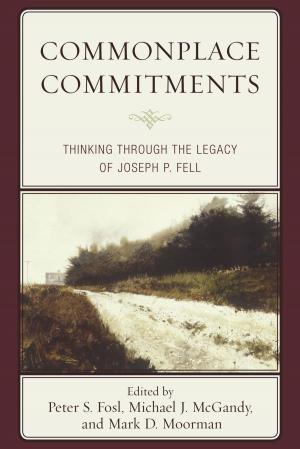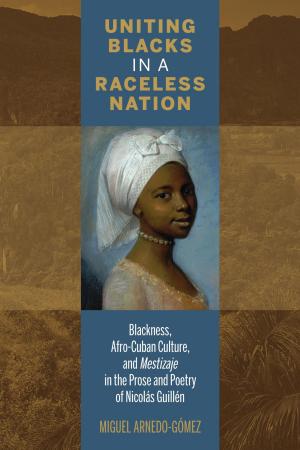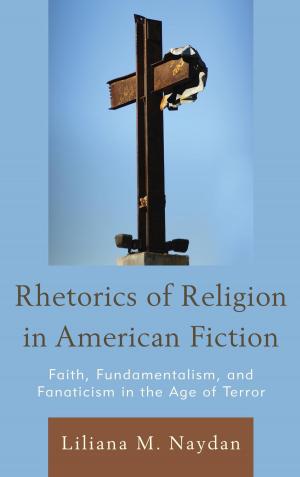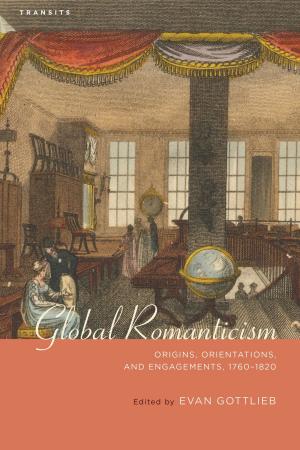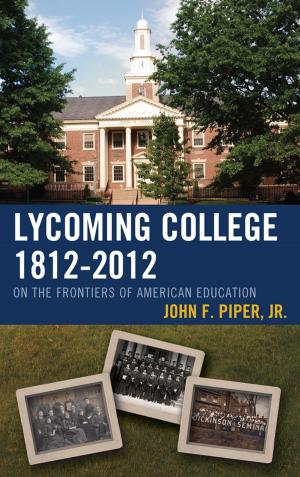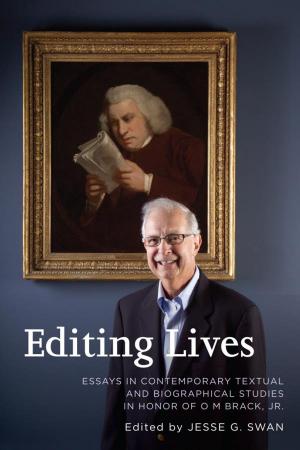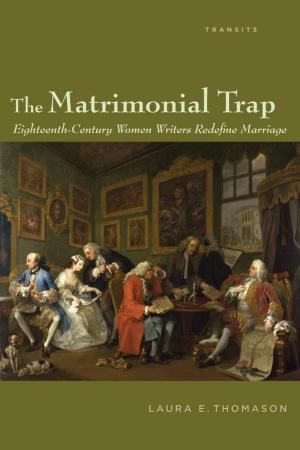Thomas Sheridan's Career and Influence
An Actor in Earnest
Nonfiction, Entertainment, Performing Arts, Theatre, History & Criticism, Fiction & Literature, Literary Theory & Criticism, British| Author: | Conrad Brunstorm | ISBN: | 9781611480399 |
| Publisher: | Bucknell University Press | Publication: | April 18, 2011 |
| Imprint: | Bucknell University Press | Language: | English |
| Author: | Conrad Brunstorm |
| ISBN: | 9781611480399 |
| Publisher: | Bucknell University Press |
| Publication: | April 18, 2011 |
| Imprint: | Bucknell University Press |
| Language: | English |
Ambitious polymath Thomas Sheridan (1719-1788) was the lynchpin of the most fascinating family in Anglo-Irish literary history. The godson (and future biographer) of Jonathan Swift, the son of Thomas Sheridan senior, a talented poet and scholar, the husband of the novelist Frances Sheridan and the father of the dramatist and politician Richard Brinsley Sheridan, this new study reconstructs this much maligned transitional Sheridan as a monumental figure in his own right. This book discusses the varied and relentless energies of Thomas Sheridan in an attempt to recover an overall purpose and agenda which unites his adventures as actor-manager of Smock Alley Theatre Dublin with his pioneering campaigns in the fields of oratory, elocution and lexicography. Infused with civic republican zeal (derived in part from close reading of Montesquieu and an admiration for native North American culture) Sheridan believed that humanity in general and Anglophones in particular suffered from a cultural and political enervation as a result of the cultivation of written language at the expense of spoken language. It is argued that 'republicanism' functioned more as a figure of political virtue than as a preferred mode of government. Enjoying particular success in Edinburgh with his public lectures, Sheridan sought to unify the peoples of Britain and Ireland by making the principles of elocution available to all, effectively de-centralising the linguistic claims of metropolitan centre. The Sheridan who emerges from this study is a phonocentric obsessive who left an abiding mark on the future of both acting and speech-making, but whose limitations are equally interesting and influential. In seeking to tame the riotous eighteenth-century stage, he anticipated (unknowingly) a far more passive 'cinematic' form of spectator entertainment (accelerated by his mentorship of the great Sarah Siddons, arguably the first player to be experienced as a 'movie star'). His dogged focus on the quality rather than the content of political debate led to his being permanently estranged from the mainstream of Irish patriotic writing while his inability to engage the economics of cultural production produces a tragic-comic figure whose disasters are as deserving of scrutiny as his successes. His genuine successes meanwhile include dignifying the profession of theatre player in a way that only Garrick could rival, helping to democratize oratory throughout the English speaking world, as well as helping to establish a continuity of specifically Irish eloquence that has subsequently become a key strand in Irish nationalist practice. Despite being a member of the British Establishment in Ireland, his patriotic pedagogy would have long-lasting, unanticipated and radical consequences. The idea of making patriotic speeches that evoke the memory of previous patriotic speeches may be Sheridan's most important and explosive contribution to his native country.
Ambitious polymath Thomas Sheridan (1719-1788) was the lynchpin of the most fascinating family in Anglo-Irish literary history. The godson (and future biographer) of Jonathan Swift, the son of Thomas Sheridan senior, a talented poet and scholar, the husband of the novelist Frances Sheridan and the father of the dramatist and politician Richard Brinsley Sheridan, this new study reconstructs this much maligned transitional Sheridan as a monumental figure in his own right. This book discusses the varied and relentless energies of Thomas Sheridan in an attempt to recover an overall purpose and agenda which unites his adventures as actor-manager of Smock Alley Theatre Dublin with his pioneering campaigns in the fields of oratory, elocution and lexicography. Infused with civic republican zeal (derived in part from close reading of Montesquieu and an admiration for native North American culture) Sheridan believed that humanity in general and Anglophones in particular suffered from a cultural and political enervation as a result of the cultivation of written language at the expense of spoken language. It is argued that 'republicanism' functioned more as a figure of political virtue than as a preferred mode of government. Enjoying particular success in Edinburgh with his public lectures, Sheridan sought to unify the peoples of Britain and Ireland by making the principles of elocution available to all, effectively de-centralising the linguistic claims of metropolitan centre. The Sheridan who emerges from this study is a phonocentric obsessive who left an abiding mark on the future of both acting and speech-making, but whose limitations are equally interesting and influential. In seeking to tame the riotous eighteenth-century stage, he anticipated (unknowingly) a far more passive 'cinematic' form of spectator entertainment (accelerated by his mentorship of the great Sarah Siddons, arguably the first player to be experienced as a 'movie star'). His dogged focus on the quality rather than the content of political debate led to his being permanently estranged from the mainstream of Irish patriotic writing while his inability to engage the economics of cultural production produces a tragic-comic figure whose disasters are as deserving of scrutiny as his successes. His genuine successes meanwhile include dignifying the profession of theatre player in a way that only Garrick could rival, helping to democratize oratory throughout the English speaking world, as well as helping to establish a continuity of specifically Irish eloquence that has subsequently become a key strand in Irish nationalist practice. Despite being a member of the British Establishment in Ireland, his patriotic pedagogy would have long-lasting, unanticipated and radical consequences. The idea of making patriotic speeches that evoke the memory of previous patriotic speeches may be Sheridan's most important and explosive contribution to his native country.




